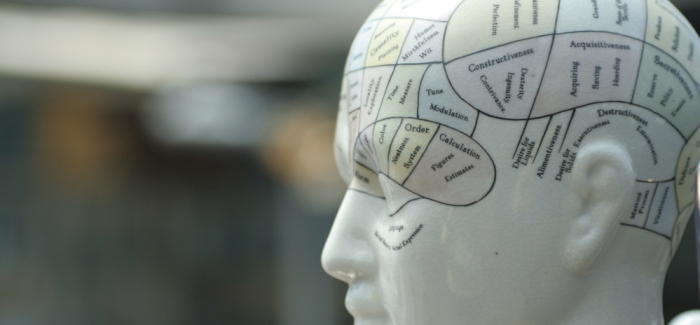Careers in economics are as diverse as they come, with job roles covering everything from food and agriculture to business and banking. Depending on your area of interest, an economics degree will help you develop specialized analytical skills, enabling you to successfully enter multiple industries as a professional economist, or as another type of professional with an eye for economics.
An economics degree will boost your employability in many areas, regardless of the industry you work within. This reflects strong demand for highly numerate graduates throughout the global labor market, and the widely transferable analytical and problem-solving skills developed by economics students.
But, more specifically, what can you do with an economics degree? Below are a range of popular economics careers, with details on what to expect and the skills you’ll need. For more advice on getting a graduate job, read our guide on how to find a job after university.
What can you do with an economics degree?
Common career paths for economics graduates include:
- Economist
- Financial risk analyst
- Data analyst
- Financial planner
- Accountant
- Economic researcher
- Financial consultant
- Investment analyst
- Actuary
- Public sector roles
While some choose to continue to study economics at graduate level (e.g. a Masters in Economics), this is not a necessity to find a good graduate job. In fact, graduate employment figures from the London School of Economics and Political Science (LSE) showed that while economics undergraduates had an average starting salary of £35,000, those armed with a graduate degree actually had a slightly lower starting salary of £33,000. This shouldn’t deter you from further study if you’re aiming at highly specialized roles (such as becoming a professional economist), but it could be useful to know that economics careers in finance and other sectors are also widely available to those with just a bachelor’s degree. See below for more common careers in economics.
Professional economist careers
As a professional economist, you’ll be involved in researching and analyzing economic data, issues and trends. For the majority of economist careers, you’ll need to study economics at postgraduate level in order to gain the specialist skills required. To be a professional economist you’ll also need to be confident in producing economic forecasts and reports to present to clients (individuals, companies, financial organizations and public bodies) and to advise on policy and/or business strategy accordingly.
Possible employers include local and national government, public and private banks, insurance companies, think-tanks, large multinational companies, financial consultancies, accountancy firms and local authorities. A sound awareness of current affairs and economic contexts is important, so consider becoming familiar with the broadsheet business pages ASAP!
Economics careers in banking
Banking careers are very common among economics students, offering scope for high earnings and high demand for economists. Graduates with a background in economics are particularly valued for roles in financial control, financial planning, risk analysis, data analysis and consultancy. With a focus on keeping the financial requirements of clients and businesses on track, banking careers are largely concerned with advising and providing services for a range of banking clients and consumers.
Economics careers in accountancy
To become a qualified accountant you’ll need further professional qualifications, but many accountancy roles are available for those who study economics. In the field of accounting you can work across multiple industries, focusing on monitoring the financial situation of an organization, business or individual. Careers in accountancy typically focus on recording, classifying, interpreting and communicating financial data, requiring strong analytical skills, mathematical proficiency, computational ability, an understanding of all elements of company finances, and the ability to contextualize the data collected.
Economics graduates are valued in this sector as they are often skilled in contextualizing a financial situation and identifying the root of financial problems. Those who are highly organized and able to make sense of complex data sets are likely to be good matches for accountancy roles.
Economics careers in business and financial consultancy
Economists and economics experts are at the heart of the business world and financial consulting. Roles within the business sector vary widely, but economics graduates may find positions in large and medium-sized business organizations where economic research is required. The role of an economic researcher is fairly self-explanatory, requiring in-depth knowledge of economics theories and models, thorough analytical and problem-solving skills and mathematical ability. Financial consultants in the area of economics would fill similar roles, but may work for multiple clients instead of just one organization, producing reports and advising on business strategy. Up-to-date industry knowledge and awareness of corporate finance is essential in these roles.
Economics careers in the public sector
In the public sector, economics careers are prolific, serving to keep governmental finances under control. Those who study economics are likely to be valued in all areas of public and private spending, including roles within pricing and risk analysis, financial consultancy and economic planning. While job roles vary hugely, economist careers in the public sector are often involved in public taxation, transport, commercial and waste services, energy and other forms of government spending. Thanks in large part to the recent global recession, and the tightening of economic regulation by governments across the globe, economics students are currently seeing an increase in demand in this sector.
Actuarial and data analysis careers in economics
An actuary is a business professional whose role is to evaluate and advise on the impacts of financial risk and uncertainty. Using knowledge of both business and economics, actuaries provide reports and devise strategies on how to lessen these risks. While most entry-level job roles in this field are within pensions and insurance, later on in your actuarial career you may have the opportunity to move towards areas including banking, investment and healthcare. Actuaries should be skilled in mathematics and compiling statistics, but also able to communicate complex data effectively to non-experts.
Alternative economics degree jobs and careers
With a background in economics, it seems, anything is possible. Other common economics careers and roles include auditor, stockbroker, insurer, business manager, retail merchandizer, pricing analyst, statistician, financial consultant and salesperson.
But what can you do with an economics degree if none of the above appeals to you? Well, you may want to also consider these broader options: business intelligence, international development, human resource management, IT, journalism, law, management, market research, politics, public relations, social research and taxation. Or, you could even become an entrepreneur and start your own business!
If you’re stuck between studying economics or business administration, read advice from our international student bloggers, here.
---
“What Can You Do With an Economics Degree?” is part of our “What Can You Do With…” series.
We have also covered art, biology, business, communications, computer science, English, engineering, fashion, history, geography, law, marketing, mathematics, performing arts, philosophy, politics, psychology, sociology, chemistry, and physics.
Want more content like this? Register for free site membership to get regular updates and your own personal content feed.







